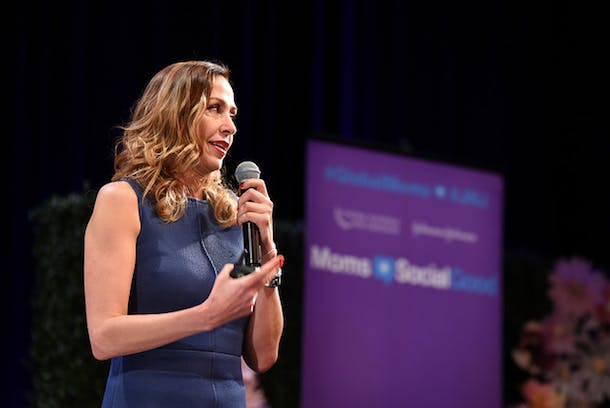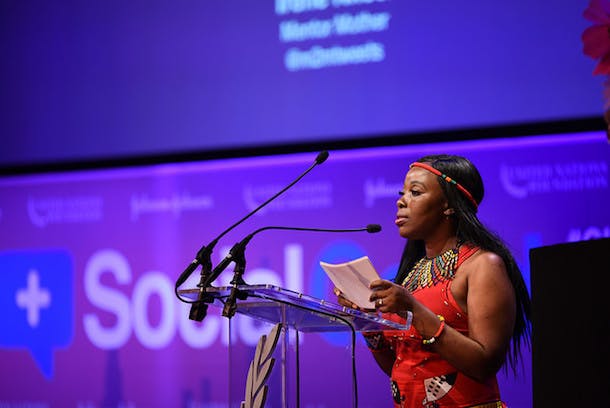
We instinctively want to shield children from life’s harsh realities, especially today when we live in a time of increased negativity and uncertainty. I think if I could wrap my own children in emotional (and sometimes physical) bubble wrap, my parenting job would be a lot easier. But bubble-wrapped kids don’t turn into self-confident problem solvers, and our world needs creative solutions from even the youngest observers.
So, how do we have important conversations with children about global challenges without increasing their anxiety? I think the answer is simple: Look to those who lead with hope.
How do you discuss with children the fact that over the past two decades 236 million kids under the age of 5 have died mostly from causes that are readily preventable and treatable? Tell them about Catalina Escobar in South America.
I heard Catalina speak at last week’s Moms +SocialGood event, where she told her story. Catalina was a volunteer at one of the largest hospitals in Cartagena, Colombia and there witnessed far too many preventable infant deaths. One day, a two-week-old baby died in her arms because his mother couldn’t afford a $30 treatment that would’ve saved his life. Catalina realized that most infants who died in her community came from teenage mothers living in poverty, and she was determined to do something about it. Catalina sold her business and started the Juan Felipe Gomez Escobar Foundation, named after her own young son who had tragically died. Through her work, Catalina has brought health care to tens of thousands of children in Cartagena and provided more than 2,000 teenage mothers with counseling, education, and job training. Because Catalina is leading with hope, the lives of thousands in her local community have drastically improved.
How do we tell children about the over 400 innocent babies around the world infected with HIV every day? Share with them the story of Irene Nkosi in Africa.

Irene found out she was HIV positive while she was pregnant, and she feared for her unborn baby. She felt scared, hopeless, and that “no one loved me.” But there are dedicated people with an organization called Mothers 2 Mothers who not only gave Irene medical help, but also trained her on how to protect her baby from HIV infection. They also employed Irene as one of their Mentor Mothers, empowering her to provide essential health education and support to other women in her own community. Today, Irene says her children “have a mother they can be proud of. A mother who was once a victim, but who is now, I can proudly say, a survivor.”
When we feel paralyzed in a world with so much tragedy, we should look to the empowering examples of those who lead with hope. The more informed we are about the people and organizations combating global problems, the easier it will be to have vital conversations about global issues with children. Let’s take our cue from those who are creating a more hopeful future not just for their own families, but for our entire global family.
[Photos: Zach Rosen for UN Foundation]



 View All Blog Posts
View All Blog Posts